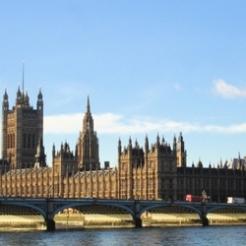Charities showed “wilful blindness” to poor practices from fundraising agencies, including putting pressure on vulnerable people and ringing donors without consent, a Daily Mail journalist told a Parliamentary inquiry last week.
Katherine Faulkner, the investigations editor at the Daily Mail, who conducted an undercover operation at fundraising agency GoGen which eventually led to its closure, was giving evidence last week to the Public Administration and Constitutional Affairs Committee.
The hearing was conducted in private and a transcript has now been published on the PACAC website.
Faulkner was asked whether charities were “complicit” in bad practice by agencies.
“I certainly think they must have refused to look,” she said. “They must have known, for example, about the policy on vulnerable people.”
Faulker also said that a number of charities had threatened legal action following the Daily Mail’s investigations into charities but none had done so. She declined to say which charities.
She also said that much of the problem was down to poor regulation.
“Charity fundraising regulation has been so complex and so ineffectual for so long,” she said. “I think it is something that has now been quite widely recognised.”
She said that her three weeks at GoGen had produced a number of serious concerns. She said one was the attitude to vulnerable people, with not enough being done to protect donors, and the other was the attitude to data protection.
“The understanding at GoGen was that they did not need to bother with the Telephone Preference Service,” she said. “Everything they were telling me about consent to phone calls was a load of nonsense, basically. There was the issue over who we were calling and what permission those people had given to be called, which was of concern. We were routinely calling people on the Telephone Preference Service. I believed there was no way they could have consented to those phone calls properly.”
She said that data protection rules were vague and weak, and called for an “opt-in” policy for all data.
Macmillan and GOSH singled out
Macmillan and Great Ormond Street Hospital Children’s Charity were also criticised by an MP for requiring donors to allow the sale of their data.
However the two charities have said the accusations are inaccurate, with Macmillan saying that it does not sell or swap donor data.
Cheryl Gillen, Conservative MP for Chesham and Amersham, said that both charities appeared to require donors to allow the use of their data in order to make money for the charity.
“The thing that made my blood run cold was reading these specific charities,” Gillen said. “Great Ormond Street requires donors to agree to have their details passed on to third parties and there is no option to opt out.”
“And in Macmillan they say, ‘Your details will be kept securely but shared with suppliers or partners’. This is to raise more money for the charity so I presume that they are taking money for passing on their lists?”
Faulkner said she had become concerned about charities’ attitude to the sale of donor data. She said that because charities were buying and selling lists of donor data, the information was being passed on to criminals who used it to target elderly individuals in scams.
“That is one of the main concerns about what the charity is doing, that this data is ending up in the hands of criminals,” she said. “It is exactly that concern that motivates our investigations.”
Gillen also asked whether charities were “too beneficial to fail,” but Faulkner said judging this was not her responsibility.
No agenda to kick charities
Faulkner also denied that there was an agenda at the Daily Mail to “kick charities”.
“We were acting on information that I was given by a whistleblower,” she said. “I went into that organisation to see for myself. We gathered evidence. The evidence was pretty shocking. We published a story.”
She accepted that while the investigation of fundraising regulation had followed the case of Olive Cooke, whose death in the summer sparked scrutiny of fundraising methods.
“We have been absolutely overwhelmed at The Daily Mail since we published our stories about charity fundraising by letters from older people who are having the exact same experience, so I would not seek to belittle that.”









